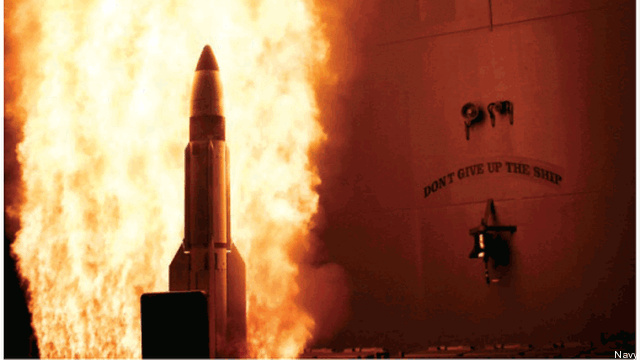Joint Chiefs Chair Says U.S. ‘Will Find Common Ground’ With Russia On Missile Defense
Posted on
 WASHINGTON: The Pentagon is “committed” to resolving the stalemate with Russia on the White House’s European missile defense plan despite claims by Moscow the plan is dead on arrival, Chairman of the Joint Chiefs of Staff Gen. Martin Dempsey said.
WASHINGTON: The Pentagon is “committed” to resolving the stalemate with Russia on the White House’s European missile defense plan despite claims by Moscow the plan is dead on arrival, Chairman of the Joint Chiefs of Staff Gen. Martin Dempsey said.
“I personally believe we will find common ground with the Russian military on [EPAA] because it is not threatening strategic nuclear deterrence,” Dempsey said during a speech in Washington last Friday. “It is very much oriented . . . against a rogue nation breaking out with some kind of nuclear missile technology.”
The European missile shield, or Evolved Phased Adaptive Approach plan, will address a number of “common threats” to Russia and the United States, the four-star general said. The biggest of those threats is a potential long-range missile attack from Iran. The missile shield is based on a network of sea and land-based missile launchers based in Europe designed to counter such an attack. Russian negotiators remain unconvinced that U.S. missiles will not be used to take out their own ballistic missile systems. Russian president Dimitri Medvedev broke off negotiations with the U.S. in November. Last week, Dempsey tried to reassure Moscow that it was Iranian — not Russian — missile systems the U.S. was after.
Dempsey would not comment on what proposals American negotiators were offering to entice Russia back to the negotiating table since those proposals are constantly in flux. The upside to that, he noted, is that negotiators on both sides are in “constant contact” to get a deal done, he said. “That will continue until we figure it out,” Dempsey added. State Department spokesman Jamie Mannina echoed that sentiment today, saying a U.S.-Russia pact on missile defense “can enhance the security of the United States, our allies in Europe, and Russia” adding U.S. negotiators will “continue to work with Russia to define the parameters of possible cooperation.” Dempsey was clear that U.S. weapons would not be used against Russian missiles.
But the nation’s top commander was less enthusiastic over another demand from Moscow for access to American weapons technology as part of the deal. That could be a possibility in the future. But only after an agreement over the missile shield sites was reached, Dempsey said. “We have to work at this through stages,” Dempsey said. “Before we get to technological exchange, I think we . . . should work are way though the other stages first. I think that is part of the process.”
Subscribe to our newsletter
Promotions, new products and sales. Directly to your inbox.
